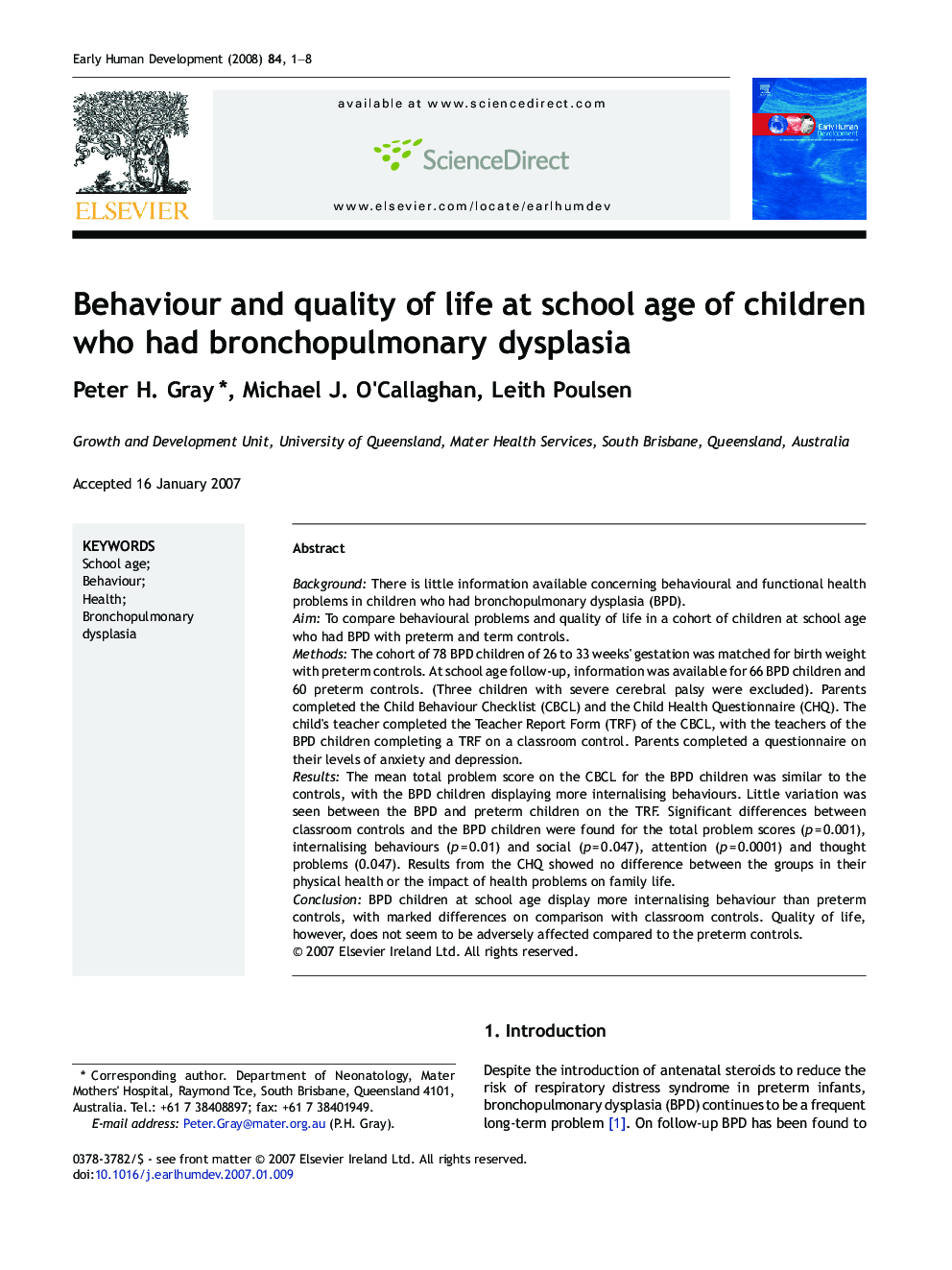| Article ID | Journal | Published Year | Pages | File Type |
|---|---|---|---|---|
| 3918579 | Early Human Development | 2008 | 8 Pages |
BackgroundThere is little information available concerning behavioural and functional health problems in children who had bronchopulmonary dysplasia (BPD).AimTo compare behavioural problems and quality of life in a cohort of children at school age who had BPD with preterm and term controls.MethodsThe cohort of 78 BPD children of 26 to 33 weeks' gestation was matched for birth weight with preterm controls. At school age follow-up, information was available for 66 BPD children and 60 preterm controls. (Three children with severe cerebral palsy were excluded). Parents completed the Child Behaviour Checklist (CBCL) and the Child Health Questionnaire (CHQ). The child's teacher completed the Teacher Report Form (TRF) of the CBCL, with the teachers of the BPD children completing a TRF on a classroom control. Parents completed a questionnaire on their levels of anxiety and depression.ResultsThe mean total problem score on the CBCL for the BPD children was similar to the controls, with the BPD children displaying more internalising behaviours. Little variation was seen between the BPD and preterm children on the TRF. Significant differences between classroom controls and the BPD children were found for the total problem scores (p = 0.001), internalising behaviours (p = 0.01) and social (p = 0.047), attention (p = 0.0001) and thought problems (0.047). Results from the CHQ showed no difference between the groups in their physical health or the impact of health problems on family life.ConclusionBPD children at school age display more internalising behaviour than preterm controls, with marked differences on comparison with classroom controls. Quality of life, however, does not seem to be adversely affected compared to the preterm controls.
